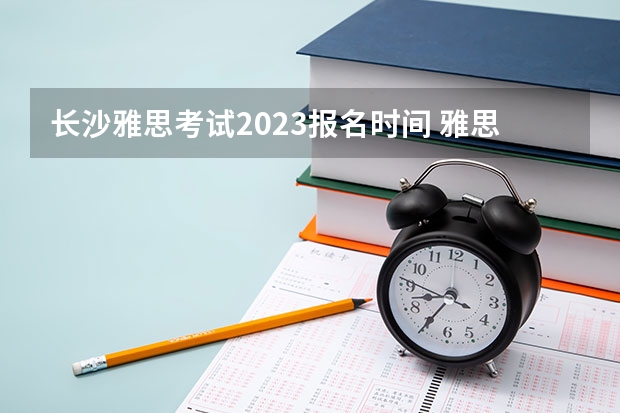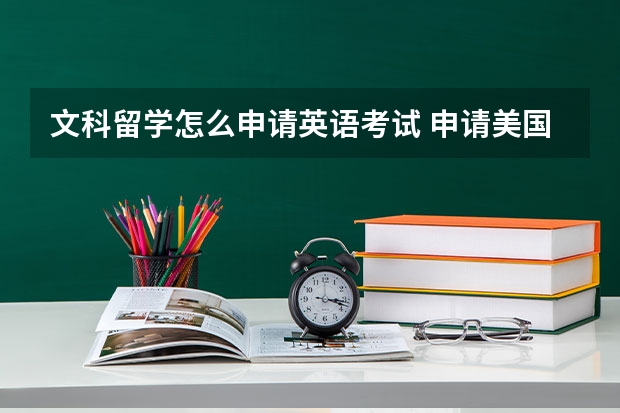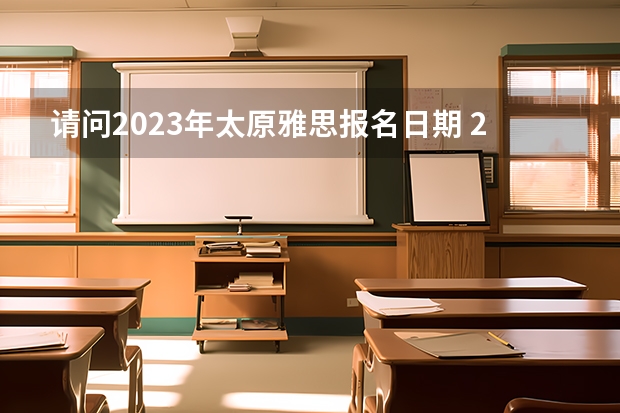雅思口语教材推荐?(雅思口语备考10大技巧)
2024-01-15 11:06:23 | 蜕变培训网
本文目录一览:

雅思口语教材推荐?
参考资料:因人而异,可能大家需要的参考书籍会有所不同。根据大家英语基础的不同,我分了以下几种情况。1.每次雅思考试后童鞋们回忆的真题,对于基础非常好的童鞋,只要练好这些题目就够了,毕竟底子在。
2.对于基础还ok,语言功底还不错,但是口语技巧方面有所欠缺的同学,我推荐大家使用慎小嶷的《十天突破雅思口语》,里面技巧性的东西大家不妨学学,但是大家要注意,因为这本书使用率非常高,里面模版性的内容就不建议大家使用了。比较好大家能仿照模板,创造出自己专属的口语模板。
3.另一本我想推荐给大家的是《雅思口语救星》,这个可以使用的人群比较广,口语没思路或者语言组织不地道的考生都可以使用,甚至基础非常好但是可能由于紧张等特殊原因拿不到高分的同学也可以使用。
注:我整理的口语题库特别是雅思口语900句可以免费提供给大家使用,对于有需要的同学,我建议还是在当当还有其他正规渠道买一本《十天》。预测和回忆是雅思考试的两大重心,大家可以将练习重点放在这两个地方。
,希望能对广大在‘杀鸭’路上的烤鸭们有所帮助!想要知道更多雅思资讯请关注环球青藤雅思频道。祝大家考试顺利!
环球青藤友情提示:以上就是[ 雅思口语教材推荐? ]问题解答,希望能够帮助到大家!

雅思口语备考10大技巧
1. Listen to yourself.
如果你听不到自己的发音问题,要纠正就很难了。试着把你将的话录下来并和英语为母语人士将的对比一下。应对雅思口语非常有效。
2. Slow down!
很多英语学习者常说语速太快容易养成他们的坏习惯。由于太快而模糊不清是口语考试的大忌。所以我们要accuracy 然后才是fluency,每天操练一些基本语言以单音节开始,然后单词,把几个词连在一起,组成句子。这样你就能慢慢开始表达自己的思想了。
3. Picture it.。
闭上你的眼睛并在说出口之前想一想如何发这个音。想象出口型和脸部动作。这个可以配合看电影来做,留意Hollywood的明星是怎么样一字一句的说出那些令人神魂颠倒的话语的。
4. Get physical!
发音是个形体动作。要学会嘴巴的发声方法和移动肌肉的方式。每天集中训练几个音。你发this, thank, they,和little, wool等单词困难吗试试发‘th’,将你的舌头放在齿间(不要咬住)并从口中吐气。感受气流从你的舌间吹过。
5. Watch yourself.
站在镜子前查看当你发某些固定音时的嘴型,唇型和舌头的位置。和你看到的native speaker的发音对比!平时还可以把自己的发音模样录成video,仔细观察比较。
6. Copy the experts.
绝对没有取代从专家-英语母语人士处学习发音的方式。因此仔细听!听英语广播节目并看英语的电视节目和电影。尽量不要念字幕!模仿你所听到的-就算你还不肯定他们说的话。
7. Practice makes perfect.
发音的问题迟迟不能解决就是因为我们害怕犯错。-第一次见面,在饭店点菜,询问方向-然后你自己表演出对话内容。别害羞!
8. Find a language buddy.
从其他人处获得反馈是非常重要的。找一个对提高英语水平同样感兴趣的朋友。试着更换录音资料这样你就可以互相听对方的发音。记住录完要重新听听,找出错误和闪光点啊。
9. Be poetic.
好的发音不仅是掌握单独的音节。还是对intonation (声音的升降调)和 stress (对单词中一些音节和句子中的一些单词更大声更清晰的发音)的理解。大声念一些诗歌,演讲,歌曲,集中练习单词的重音和音调。
10. Sing a song!
学习一些英语流行歌曲的歌词并跟着唱。唱歌帮助你放松并能让这些词说出来,同时帮助改进你的语音和语调。 蜕变培训网
雅思口语备考 10大技巧小编就说到这里了,更多关于雅思考试报名入口,雅思报名时间,成绩查询,雅思报名费用,准考证打印入口及时间等问题,小编会及时更新。希望各位考生都能进入自己的理想院校。希望大家能认真备考,取得好成绩。

雅思口语 求高手给素材
JUDGE'S PLEDGETHE JUDGE'S PLEDGE
As a member of the judiciary who desires to improve relations among
counsel and between the Bench and the Bar, I pledge as follows:
To be courteous, respectful and civil to the attorneys, parties, and
witnesses who appear before the court;
To exercise my authority to ensure that all the attorneys, parties, and
witnesses conduct themselves in a civil manner;
To refrain from any conduct or statement which discriminates on the basis
of race, religion, gender, sexual orientation or other personal
characteristic of attorneys, parties, or witnesses;
To instruct all court personnel to act civilly toward attorneys, parties,
and witnesses;
To refrain from the use of abusive, demeaning or humiliating language and
opinions in oral or written communication with attorneys, parties, and
witnesses;
To be punctual in covering all hearings, meetings, and conferences;
To give full consideration to the papers and arguments presented by
counsel
To make a reasonable effort to decide promptly all matters presented for
decision;
To be aware of the time restraints and pressures imposed upon attorneys by
the exigencies of litigation practice, while nevertheless endeavoring to
resolve disputes efficiently;
To make every effort to adhere to the statutes and court rules which are
intended to establish uniformity among all of the courts;
To consider the legitimate calendaring conflicts of attorneys, parties,
and witnesses in the administration of those matters before the court;
To avoid conduct which would give an appearance of favoritism to any
particular counsel or party;
To be mindful that the court is the servant of the people and its purpose
is the administration of justice.
法官的保证
作为法官队伍中的一名希望改善律师之间的关系以及法官与律师之间的关系的成员,本文作出如下保证:
对出庭或到庭的律师、当事人以及证人礼貌、尊重、文明;
行使本人的职权以保证所有的律师、当事人以及证人以文明方式行事;
避免任何歧视律师、当事人或者证人的种族、宗教、性别、性取向、或其他个人特征的行为或语言;
指示所有法院人员以文明方式对待律师、当事人以及证人;
在与律师、当事人以及证人的口头或书面交流中避免辱骂性的、贬损性的或羞辱性的语言或意见;
准时进行所有的聆审和会议;
充分考虑律师呈交的所有文件和做出的所有辩论;
做出合理努力以迅速地对所有待决事项做出决定;
考虑到诉讼实践给律师带来的时间限制和压力,但是仍然努力有效地解决争端;
尽力遵守旨在使所有法院统一的制定法和法院规则;
在处理法院事务是考虑律师、当事人以及证人的合理的时间冲突;
避免任何对某个律师或当事人由偏袒迹象的行为;
谨记法院是人民的公仆,其目的是维护正义。
Judges
Fewer than one in twenty of those admitted to practice law is a federal, state, county, or municipal court judge. Except for some inferior courts, judges are generally required to be admitted to practice but do not practice while on the bench. There is so little uniformity that it is difficult to generalize further than to point out three salient characteristics that relate to the ranks from which judges are drawn, to the method of their selection, and to their tenure.
Judges are drawn from the practicing bar and less frequently from government service or the teaching profession. There is in the United States no career judiciary like that found in many other countries and there is no prescribed route for the young law graduate who aspires to be a judge, no apprenticeship that must be served, no service that must be entered. The outstanding young law graduates who act for a year or two as law clerks to the most distinguished judges of the federal and state courts have only the reward of the experience to take with them into practice and not the promise of a judicial career. While it is not uncommon for a vacancy on a higher court to be filled by a judge from a lower court, even this cannot be said to be the rule. The legal profession is not entirely unaware of the advantages of a career judiciary, but it is generally thought that they are outweighed by the experience and independence which American lawyers bring to the bench. Many of the outstanding judges of the country�s highest courts have had no prior judicial experience. Criticism has centered instead on the prevalent method of selection of judges.
State court judges are usually elected, commonly by popular vote, but occassionally by the legislature. Popular election has been the subject of much disapproval, including that of the American Bar Association, on the ground that the public lacks interest in and information on candidates for judicial office and that therefore the outcome is too often controlled by leaders of political parties. The situation has been somewhat improved since many local bar associations have undertaken to evaluate the qualifications of candidates and to support or oppose them on this basis.
Since 1937, the American Bar Association has advocated the substitution of a system under which the governor appoints judges from a list submitted by a special nominating board and the judge then periodically stands unopposed for reelection by popular vote on the basis of his or her record. Such a system is now in effect, for at least some judges, in a substantial minority of states. In a small group of states, judges are appointed by the governor subject to legislative confirmation.
This is also the method of selection of federal judges, who are appointed by the President subject to confirmation by the Senate. Even under the appointive system the selection of judges is not immune from political influence and appointees are usually of the President�s or governor�s own party. But names of candidates for the federal judiciary are submitted to a committee of the American Bar Association and appointment is usually made only with its approval. The office of chief judge or chief justice is usually filled in the same manner as other judicial offices, although in some states it is filled from among the members of the court by rotation, by seniority of service, or by vote of the judges. The Chief Justice of the United States is appointed by the President, subject to Senate confirmation.
The third characteristic is that judges commonly serve for a term of years rather than for life. For courts of general jurisdiction it is typically four, six, or eight years, and for appellate courts, six, eight, or ten years. Happily, even where selection is by popular election, it is customary to return to office for sitting judges whose service has been satisfactory. In a few state courts and in the federal courts the judges sit for life. Whether on the bench for a term of years or for life, a judge may be removed from office only for gross misconduct and only by formal proceedings. Instances of removal have been rare indeed and only a handful of federal judges have been removed by formal proceedings. The independence of the judiciary is also encouraged by the rule that a judge incurs no civil liability for judicial acts, even if guilty of fraud and corruption. The American Bar Association�s Code of Judicial Conduct has been widely adopted as a standard to which judges are expected to adhere. Salaries for the higher judicial offices are usually good although less than the income of a successful private practitioner, the prestige of these offices is high, and the bench has been able to attract many of the country�s ablest legal minds. The great names in American law are in large part the names of its great judges.
TEAMWORK 以上就是雅思口语教材推荐?(雅思口语备考10大技巧)全部内容,更多相关信息,敬请关注蜕变培训网。
- 株洲环球雅思口语面试题 雅思机经:2023.4.21 雅思口语Part1机经考题
- 雅思口语教材推荐?(雅思口语备考10大技巧)
- 南京环球雅思口语面试时间 请问雅思口语考试流程和时间安排
- 2023年5月15日雅思口语考试真题与答案 2023年6月12日雅思考试真题答案
- 雅思考试口语时间是什么时候
- 南宁环球雅思百特口语中心 2023年南宁雅思考试内容介绍
- 雅思口语比较类答题技巧(2023年6月12日雅思写作考题预测)
- 雅思口语题库要如何使用
- 环球雅思和新东方雅思那个好,或者能不能推荐一些靠谱的网课 雅思写作网络课程
- 雅思口语地道词汇如何积累
- 环球雅思口语模考答案大全 2023年7月31日雅思考试真题回忆汇总
- 雅思自我介绍的范文怎么写
-
 2023年全年各类雅思考试时间及费用一览 2023年雅思考试时间和费用介绍
2023年全年各类雅思考试时间及费用一览 2023年雅思考试时间和费用介绍2023-12-12 23:01:54
-
 长沙雅思考试2023报名时间 雅思2023年几月报名?
长沙雅思考试2023报名时间 雅思2023年几月报名?2023-12-19 12:29:11
-
 2023雅思考试时间安排表及报名时间表 2023年云南省雅思考试时间及考试地点已公布
2023雅思考试时间安排表及报名时间表 2023年云南省雅思考试时间及考试地点已公布2023-12-23 06:41:07
-
 雅思报名时间 雅思考试报名时间?
雅思报名时间 雅思考试报名时间?2023-12-14 16:37:34
-
 文科留学怎么申请英语考试 申请美国研究生留学需要通过的语言考试
文科留学怎么申请英语考试 申请美国研究生留学需要通过的语言考试2023-10-13 00:54:28
-
 请问2023年太原雅思报名日期 2023年雅思报名时间安排
请问2023年太原雅思报名日期 2023年雅思报名时间安排2023-12-16 23:04:36